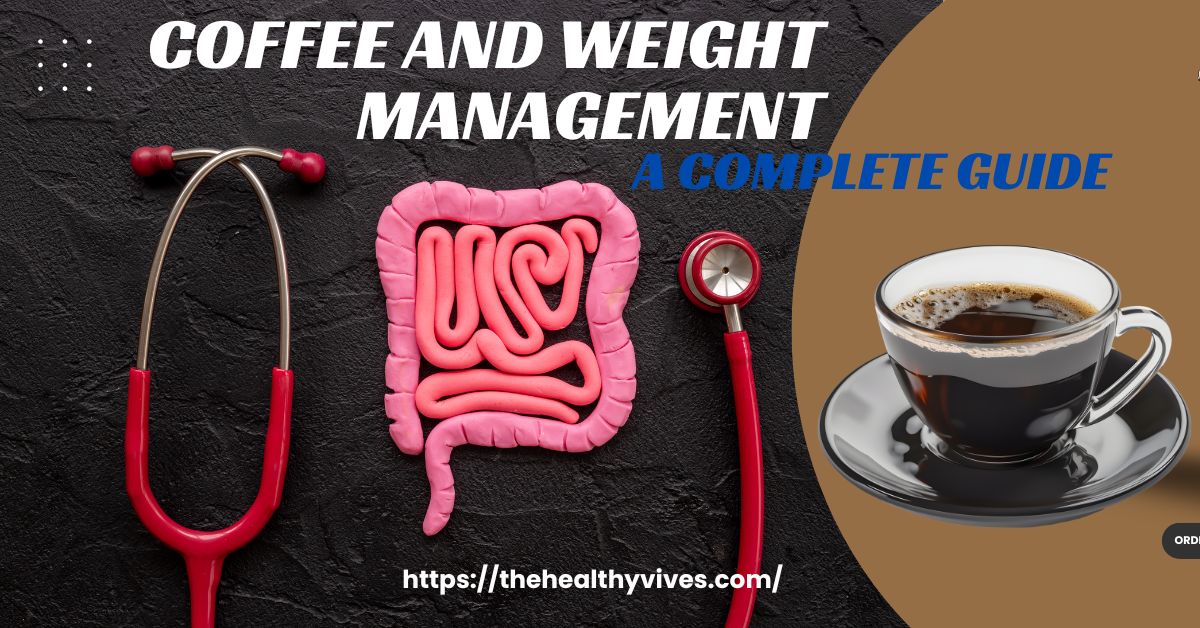
Coffee with Digestive Benefits has evolved beyond its traditional role as a morning stimulant; it now presents unexpected advantages for digestive health. While many individuals depend on coffee for an energy boost, it has been recognized for its capacity to stimulate the digestive system for quite some time. Indeed, coffee’s effectiveness in promoting gastrointestinal activity has made it a popular choice for those seeking digestive support. Recently, however, specific coffee blends have been developed with the primary aim of enhancing digestive wellness.
These innovative coffee blends not only provide caffeine but also incorporate various ingredients that support digestion, alleviate inflammation, and foster a healthy gut environment. Options such as low-acid coffees and those enriched with probiotics, digestive enzymes, and beneficial herbs are available, all of which can contribute to improved digestion and overall health.
In this article, we will examine the significant benefits of digestive health coffee, identify the key ingredients to seek in these blends, and offer practical advice on how to integrate these coffee varieties into your daily routine for a healthier gut. Whether your goal is to enhance bowel regularity or to alleviate bloating and discomfort, you may discover that coffee can provide more support for your digestive system than you previously realized.
Coffee with Digestive Benefits
The Natural Digestive Properties of Coffee
Coffee is widely recognized for its capacity to enhance digestive processes. A key component, caffeine, serves as a natural stimulant that influences various physiological functions, including those related to digestion. Upon consumption, caffeine interacts with both the central nervous system and the digestive tract, leading to an increase in motility—the movement of food through the digestive system. This characteristic is why coffee is frequently linked to the promotion of bowel movements, occasionally functioning as a mild laxative for certain individuals.
Caffeine facilitates the secretion of gastrin, a hormone responsible for stimulating stomach acid production and enhancing peristalsis, which refers to the rhythmic contractions of the intestines. These contractions expedite the transit of waste through the intestines, explaining why many individuals feel the need to have a bowel movement shortly after consuming coffee.
This inherent stimulatory effect is the reason coffee has historically been regarded as a beneficial aid for those experiencing occasional constipation. Its capacity to initiate digestive activity can assist in maintaining regular bowel movements and ensuring the digestive system operates efficiently.
Potential Digestive Challenges
Although coffee can provide certain digestive advantages, it also presents potential drawbacks, particularly for those who are sensitive to its acidity or stimulating properties. A frequent concern associated with coffee consumption is its propensity to induce acid reflux or heartburn. Being inherently acidic, coffee can irritate the stomach and esophageal lining in some individuals, resulting in unpleasant sensations such as burning in the chest and throat.
Acid reflux occurs when stomach acid regurgitates into the esophagus, and the acidic nature of coffee, combined with its caffeine content, may sometimes relax the lower esophageal sphincter, facilitating this backflow. Consequently, individuals who are susceptible to acid reflux or gastroesophageal reflux disease (GERD) may find that coffee consumption worsens their symptoms.
Moreover, the acidity of coffee can lead to irritation of the stomach lining, particularly in those with sensitive digestive systems. This irritation can manifest as gastric discomfort, including symptoms like nausea or indigestion. Those who encounter such issues might consider choosing low-acid coffee varieties or trying alternative brewing methods, such as cold brew, which typically yields a smoother and less acidic beverage.
In conclusion, while coffee can serve as an effective digestive stimulant, it is crucial to recognize its potential to cause discomfort in certain individuals, especially those with acid sensitivity or a tendency toward reflux.
Key Ingredients in Digestive Health Coffee
Prebiotics and Probiotics
The integration of prebiotics and probiotics into coffee formulations has gained significant traction as a means to enhance gut health. Probiotics are live microorganisms that confer health benefits by maintaining a favorable balance of gut bacteria, thereby supporting digestive processes and overall health. These beneficial bacteria are essential for the digestion of food, nutrient absorption, and bolstering the immune system. Incorporating probiotics into coffee serves as a convenient method to introduce these advantageous organisms into the body.
Conversely, prebiotics are non-digestible fibers that nourish and promote the growth of probiotics. They can be viewed as the essential “fuel” that sustains beneficial bacteria. By consuming prebiotics in conjunction with probiotics, one fosters an environment within the gut conducive to the flourishing of healthy bacteria, which aids in improving digestion, alleviating bloating, and enhancing nutrient uptake. Coffee blends that are fortified with both prebiotics and probiotics create a synergistic effect that supports the digestive system by optimizing the gut microbiome, a critical factor for sustained digestive health.
Digestive Enzymes
Digestive enzymes represent another vital element present in certain coffee blends aimed at digestive health. These enzymes facilitate the breakdown of food into smaller, more absorbable nutrients. Notable enzymes include amylase, protease, and lipase, each serving distinct functions in the digestive process:
– Amylase is responsible for the breakdown of carbohydrates.
– Protease aids in the digestion of proteins.
– Lipase contributes to the breakdown of fats.
For individuals experiencing slow digestion or post-meal bloating, coffee infused with digestive enzymes can prove particularly advantageous. These enzymes expedite the food breakdown process, enhancing the efficiency of the digestive system. Individuals with enzyme deficiencies or those consuming heavy meals may find that regularly drinking coffee enriched with these enzymes leads to improved digestion, reduced discomfort, and enhanced nutrient absorption.
Herbs and Spices for Digestive Health
Certain herbs and spices are renowned for their capacity to alleviate digestive issues and diminish inflammation, making them valuable components in coffee blends aimed at promoting digestive health. Three frequently utilized ingredients include:
Ginger: Esteemed for its anti-inflammatory characteristics, ginger is effective in mitigating nausea, enhancing gastric emptying, and relieving symptoms associated with indigestion. Additionally, it can stimulate the production of digestive enzymes, thereby contributing positively to gut health.
Peppermint: This herb has a long-standing history of use in addressing digestive concerns such as bloating, gas, and irritable bowel syndrome (IBS). Peppermint works by relaxing the muscles within the gastrointestinal tract, facilitating the passage of food and alleviating discomfort.
Turmeric: Recognized for its vibrant yellow hue and potent anti-inflammatory properties, turmeric contains curcumin, a compound that aids in reducing inflammation within the digestive system. It is especially beneficial for individuals suffering from chronic digestive disorders such as IBS or gastritis.
Integrating these herbs and spices into coffee not only enhances its flavor profile but also provides soothing and restorative benefits for the digestive system. They can assist in calming an upset stomach, alleviating digestive discomfort, and improving overall gut function.
In conclusion, prebiotics and probiotics contribute to the balance of gut bacteria, digestive enzymes facilitate the breakdown of food, and herbs like ginger, peppermint, and turmeric offer calming, anti-inflammatory properties. Collectively, these ingredients form a comprehensive digestive health coffee that fosters improved digestion, minimizes discomfort, and supports overall gut wellness.

Advantages of Coffee Enhanced with Digestive-Friendly Components
Enhanced Bowel Regularity
A prominent advantage of coffee infused with digestive-friendly components is its capacity to enhance bowel regularity. Coffee inherently stimulates the digestive system; however, when combined with elements such as probiotics, prebiotics, and digestive enzymes, its effectiveness in promoting healthy bowel movements is significantly amplified. For individuals experiencing constipation, these specialized coffee formulations can aid in stimulating peristalsis—the contractions of the intestines that facilitate the movement of waste through the digestive tract—thereby encouraging more frequent and comfortable bowel movements.
Moreover, ingredients like ginger and peppermint, recognized for their calming effects on digestion, can alleviate bloating and discomfort while enhancing overall gut motility. These digestive-friendly blends offer a gentle yet effective approach to maintaining healthy digestive function, providing relief from constipation without resorting to more aggressive treatments.
Decreased Inflammation
Another notable advantage of coffee designed for digestive health is its potential to diminish inflammation within the digestive tract. Ingredients such as turmeric, which contains the potent anti-inflammatory compound curcumin, are instrumental in alleviating digestive irritation and inflammation. Persistent inflammation in the gut can result in discomfort, bloating, and potentially more severe conditions such as irritable bowel syndrome (IBS) or gastritis.
By integrating anti-inflammatory components into your coffee, you can soothe the lining of your digestive system, facilitating a more comfortable digestion process. This can be especially advantageous for those who frequently experience digestive discomfort or suffer from conditions like IBS. Reducing inflammation not only helps alleviate symptoms but also contributes to long-term gut health by safeguarding the integrity of the digestive lining.
Improved Nutrient Absorption
Coffee blends designed for digestive health frequently include digestive enzymes such as amylase, protease, and lipase, which facilitate more effective food breakdown. This enhanced process results in improved nutrient absorption, enabling the body to derive a greater quantity of vitamins, minerals, and other vital nutrients from consumed food. When digestion is slow or incomplete, the body may fail to absorb all available nutrients, potentially leading to deficiencies over time.
By assisting in the breakdown of carbohydrates, proteins, and fats, these digestive enzymes enhance the overall efficiency of the digestive system, allowing for more effective nutrient uptake. This is especially beneficial for individuals experiencing digestive challenges such as malabsorption or bloating following meals. Improved nutrient absorption guarantees that the body reaps the full advantages of the food ingested, thereby promoting overall health and wellness.
In conclusion, coffee enriched with digestive-supportive components provides numerous advantages, including enhanced bowel regularity, decreased inflammation, and superior nutrient absorption. By integrating these blends into your daily routine, you can foster healthier digestion, alleviate discomfort, and ensure your body receives the essential nutrients required for optimal functioning.
Selecting the Appropriate Coffee for Digestive Wellness
It is crucial to choose the right type of coffee to support digestive health, particularly for those who experience stomach-related issues such as acid reflux, bloating, or sensitivity. By considering factors such as acidity levels, sourcing practices, and the presence of digestive-friendly components, one can incorporate coffee into their routine in a more comfortable and beneficial manner.
Options for Low-Acidity Coffee
For individuals with sensitive digestive systems or conditions like acid reflux or GERD, opting for low-acid coffee is essential. Conventional coffee often has a high acidity level, which can irritate the stomach lining, resulting in discomfort, heartburn, or worsening acid reflux symptoms.
Low-acidity coffee is formulated to mitigate these adverse effects by lowering the pH level, making it gentler on the digestive tract. Coffee beans cultivated at lower altitudes or subjected to longer roasting times (dark roast) typically exhibit reduced acidity. Certain blends are specifically marketed as low-acid, providing an excellent choice for coffee enthusiasts who experience stomach irritation. Additionally, cold brew coffee, which naturally has a lower acidity due to its brewing method, is a favored option for those sensitive to acidic beverages.
Emphasis on Organic and Clean Sourcing
Another important consideration when selecting coffee for digestive health is the emphasis on organic and clean sourcing. Many conventionally grown coffee beans are treated with pesticides, chemicals, and other harmful substances during cultivation. These substances can irritate the gastrointestinal tract and contribute to digestive discomfort when consumed frequently.
Opting for organic coffee guarantees that the beans are free from synthetic pesticides, herbicides, and fertilizers, which are known to cause irritation in some individuals. Furthermore, organic farming practices often enhance soil health, resulting in higher-quality, nutrient-dense coffee beans. Seek out labels such as “USDA Organic” or equivalent certifications that confirm the coffee is cultivated without harmful chemicals.
Blends with Enhanced Digestive Components
Numerous coffee blends that are gentle on the digestive system extend beyond merely being low-acid or organic by incorporating additional components specifically aimed at enhancing gut health. When selecting coffee that aids digestion, seek out blends that feature probiotics, prebiotics, digestive enzymes, and soothing herbs such as ginger, peppermint, or turmeric.
These blends are frequently promoted as “functional coffees” and include advantageous ingredients that can assist in balancing gut flora, enhancing digestion, and alleviating inflammation. Coffee enriched with probiotics can aid in restoring the healthy bacteria in the gut, while those infused with prebiotics (fibers that nourish beneficial bacteria) contribute to a supportive environment for the microbiome. Additionally, coffee containing digestive enzymes can facilitate more efficient food breakdown, particularly beneficial for individuals with slower digestive processes.
It is advisable to choose brands that explicitly list these digestive-friendly components on their labels or those that emphasize their formulation for gut health. Some may also highlight the inclusion of herbs and spices traditionally recognized for their digestive benefits, such as peppermint, which alleviates bloating, or turmeric, celebrated for its anti-inflammatory effects.
Conclusion
When selecting an appropriate digestive-friendly coffee, prioritize low-acidity varieties to reduce stomach discomfort, opt for organic sources to steer clear of harmful chemicals, and consider blends with added digestive components like probiotics, prebiotics, or herbs to promote gut health. These factors will enable you to savor your coffee while maintaining a balanced and comfortable digestive system.
Tips for Making Coffee Gentler on the Stomach
For those who relish their daily cup of coffee but encounter digestive issues, it is crucial to adopt strategies that make coffee gentler on the stomach. By exploring various brewing techniques, beneficial additives, and optimal consumption timing, one can savor coffee while alleviating potential stomach discomfort.
Brewing Techniques to Lower Acidity
The brewing method employed can greatly influence the acidity of coffee. Two effective techniques for those aiming to reduce acidity are cold brew and French press:
Cold Brew: This technique entails steeping coffee grounds in cold water for an extended duration, typically ranging from 12 to 24 hours. The cold extraction method yields a coffee concentrate that possesses significantly lower acidity compared to hot-brewed varieties. Cold brew not only delivers a smoother and less bitter taste but also diminishes the likelihood of stomach irritation, making it a favored option for individuals with sensitive digestive systems.
French Press: This approach permits coffee grounds to steep directly in hot water, resulting in a rich and full-bodied beverage. Since the French press does not utilize a paper filter, which can absorb some of the coffee’s natural oils, it retains more of these beneficial oils. Although it may not be as low in acidity as cold brew, it generally exhibits lower acidity than drip coffee, particularly when a dark roast is selected, which tends to offer a more mellow flavor profile.
By choosing these brewing methods, one can enjoy a delightful cup of coffee while mitigating potential digestive discomfort.
Enhancements for Digestive Wellness
Incorporating specific additions into your coffee can further promote digestive health:
Plant-Based Milks: Replacing conventional dairy milk with plant-based alternatives such as almond milk, oat milk, or coconut milk can be gentler on the stomach, particularly for those who are lactose intolerant or sensitive to dairy. Many plant-based milks are also enriched with vitamins and minerals, offering additional health advantages.
Coconut Oil: Incorporating a teaspoon of coconut oil into your coffee may enhance digestion. Coconut oil is rich in medium-chain triglycerides (MCTs), which are readily digestible and can serve as a rapid energy source. Additionally, the healthy fats present in coconut oil can promote a sense of satiety, thereby diminishing cravings throughout the day.
Probiotics: Adding probiotic powders or kefir to your coffee can further augment its gut-friendly properties. These ingredients assist in replenishing beneficial gut bacteria, which in turn fosters improved digestion and nutrient absorption. It is advisable to select powders specifically designed for coffee, as they are formulated to endure high temperatures.
Timing of Consumption
The timing of coffee consumption can greatly influence digestive health. Below are some recommendations for when to enjoy your coffee to enhance digestion and reduce discomfort:
With or After Meals: Consuming coffee alongside or following meals can facilitate digestion. Coffee has the potential to stimulate the digestive system and encourage the release of gastric juices, which aids in food breakdown. However, it is recommended to wait at least 30 minutes post-meal to prevent overwhelming the digestive system, particularly for individuals susceptible to acid reflux.
Avoiding Empty Stomach: For those with sensitive digestive systems, drinking coffee on an empty stomach may cause irritation and discomfort. It is prudent to consume a small meal or snack prior to morning coffee to mitigate acidity and safeguard the stomach lining.
Moderation and Timing: Restricting coffee intake to one or two cups daily and spacing out consumption can help avert digestive complications. Observing how your body reacts to coffee at various times can assist in determining the most suitable routine for your digestive well-being.
Conclusion
By utilizing brewing techniques that lower acidity, incorporating beneficial ingredients, and carefully timing your coffee consumption, you can create a more stomach-friendly coffee experience. These strategies enable you to relish the rich flavors of coffee while promoting digestive health, ensuring an enjoyable experience.

Potential Side Effects and Considerations
While coffee may provide several digestive advantages, it is important to recognize the potential side effects and considerations that could influence your experience. Being aware of these elements can enhance your enjoyment of coffee while reducing discomfort and promoting optimal gut health.
Caffeine Sensitivity
A significant concern associated with coffee consumption is caffeine sensitivity. For certain individuals, caffeine may overly stimulate the digestive system, resulting in symptoms such as nausea, stomach cramps, or diarrhea. If you are aware of your sensitivity to caffeine, it is essential to regulate your intake accordingly:
Begin Gradually: If you are new to digestive-friendly coffee or have faced issues previously, start with a smaller quantity. Gradually increase your consumption as your body acclimates to the caffeine.
Choose Low-Caffeine or Decaffeinated Options: Consider selecting low-caffeine or decaffeinated varieties, which can still deliver the rich taste of coffee without the stimulating effects of caffeine. These alternatives can help mitigate the risk of digestive disturbances while allowing you to maintain your coffee routine.
Observe Your Body’s Reaction: Be mindful of how your body responds after consuming coffee. If you encounter digestive discomfort, contemplate modifying the type of coffee, the brewing technique, or the timing of your consumption.
Moderation
Although coffee can offer digestive benefits, it is crucial to practice moderation. Over-dependence on coffee for these advantages may result in:
Dependency: Relying exclusively on coffee for digestive health can foster a dependency, making it challenging to maintain regularity without it. It is important to incorporate a diverse range of foods and beverages that promote gut health into your diet.
Possible Adverse Effects: Excessive coffee intake can lead to negative consequences, including heightened heart rate, anxiety, and digestive discomfort. Aim to restrict your consumption to one or two cups per day to reap the benefits without overindulgence.
Incorporating Additional Healthy Practices: Adopting a range of healthy practices, including a fiber-rich balanced diet, maintaining proper hydration, and engaging in regular physical activity, will create a more comprehensive strategy for promoting digestive health, enhancing the advantages of coffee consumption.
Individual Responses
It is essential to acknowledge that each person’s digestive system may respond differently to coffee. Various factors, including personal tolerance levels, gut health, and pre-existing digestive disorders, can affect the impact of coffee on an individual
Tailored Approach: Each digestive system is distinct, and what is beneficial for one individual may not be suitable for another. Exploring various types of coffee, brewing techniques, and consumption timing can assist in identifying what best supports your digestive well-being.
Seek Professional Guidance: For those with existing digestive issues, such as irritable bowel syndrome (IBS), acid reflux, or other gastrointestinal concerns, it is advisable to consult a healthcare provider or nutritionist. They can offer personalized recommendations on how to integrate coffee into your lifestyle without worsening symptoms.
Pay Attention to Your Body: Being aware of your body’s reactions is vital. Should you encounter ongoing digestive problems or discomfort associated with coffee, it may be prudent to reassess your intake and consider alternatives that align more closely with your specific digestive requirements.
Conclusion
By being aware of the potential side effects and factors associated with coffee consumption, you can reap its digestive benefits while minimizing any discomfort. Managing caffeine sensitivity, practicing moderation, and understanding individual responses will empower you to make informed decisions about incorporating coffee into your diet in a manner that supports your digestive health.
Conclusion
In conclusion, coffee that is gentle on the digestive system can provide a variety of advantages for individuals aiming to enhance their gut health while savoring their daily beverage. Selecting coffee blends that contain prebiotics, probiotics, and digestive enzymes can foster a healthier gut microbiome, promote regular bowel movements, and improve nutrient absorption. Furthermore, utilizing low-acidity brewing techniques and adding calming ingredients can reduce digestive discomfort, thereby making the coffee experience more pleasurable.
As you delve into the realm of digestive health-oriented coffee, we encourage you to experiment with different blends and brewing styles. Trying out various ingredient combinations and brewing methods will enable you to identify what is most beneficial for your digestive system. Whether you prefer cold brew, French press, or a blend enriched with healthful herbs, the options are extensive.
Ultimately, it is important to recognize that Coffee with Digestive Benefits can serve a purpose beyond mere stimulation; it can play a significant role in your digestive health regimen. By incorporating digestive-friendly coffee into your daily routine and being mindful of your body’s reactions, you can enjoy the rich tastes of coffee while simultaneously supporting your gut health. With informed choices, your morning ritual can evolve into a delightful path toward improved digestive wellness.

